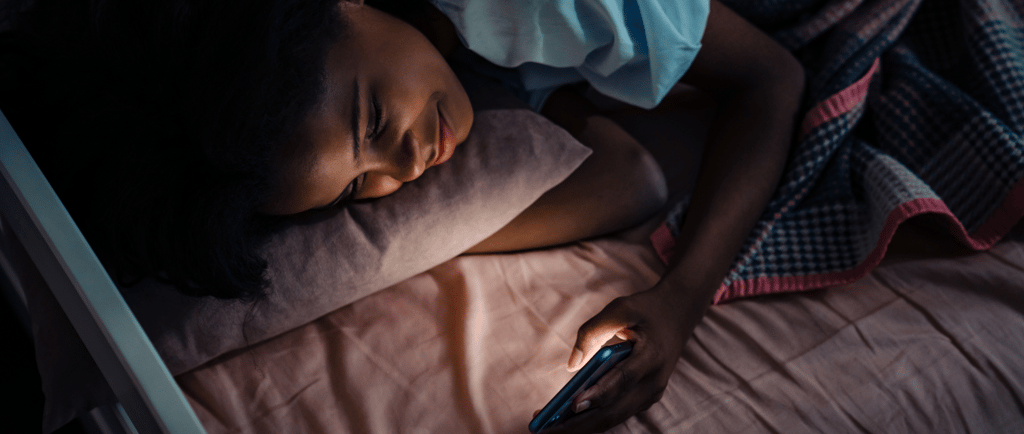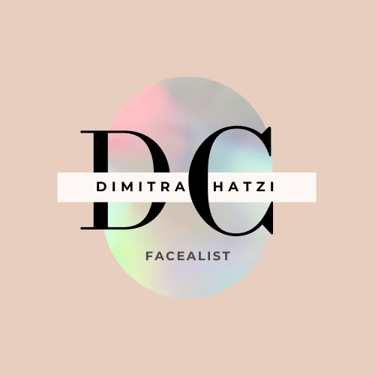Is Social Media Stealing Your Teen's Sleep? The Link Between Screen Time, Sleep Quality & Overall Wellness
Discover the shocking truth about how screen time, blue light, and endless scrolling are directly impacting your teen's sleep quality, mental health, and overall wellness.
TEENAGERS SKINROUTINE AND HABITSPARENTS TO BE
Dimitra Chatzi
8/26/20254 min read


From my conversations with countless parents, educators, and even the teens themselves, a single, pressing concern echoes through every discussion: "Is social media stealing our kids' sleep?" It's a question that has moved from a passing worry to a critical issue impacting the physical and mental health of an entire generation. I've personally seen the weary eyes of a parent describing their child's "just one more video" promises stretching into the early hours, and I've heard the frustration in a teacher's voice about the lack of focus in their first-period class. This isn't a matter of convenience; it's a profound challenge that demands our attention. This article, born from these very real observations, is my attempt to delve into the complex relationship between screen time, sleep quality, and overall well-being, offering actionable insights and a path forward for a healthier digital life for all of us.
The Digital Twilight Zone: A Scientific Perspective
The science is clear: the light emitted from screens, particularly the blue light from smartphones, tablets, and computers, messes with our body's internal clock. Our circadian rhythm is a 24-hour cycle that regulates sleep and wakefulness, and it is highly sensitive to light. When our eyes are exposed to blue light in the evening, our brains are tricked into thinking it's still daytime. This suppresses the production of melatonin, the hormone that signals to our body that it's time to sleep.
For a teenager, whose brain is still developing and whose sleep needs are already high, this disruption is particularly damaging. The result is a delayed sleep phase, where they can't fall asleep until well after midnight, and then struggle to wake up in the morning. This chronic sleep deprivation isn't just about feeling tired; it has far-reaching consequences on their health and academic performance.
The Scroll of Anxiety: Social Media's Mental Toll
Beyond the biological impact of blue light, the content of social media itself plays a significant role in sleep disruption. The pressure to maintain a certain image, the fear of missing out (FOMO), and the constant comparison to curated online lives can create a state of heightened anxiety and stress. As a teen lies in bed, they aren't just scrolling; they're processing a barrage of information, from a friend's perfect vacation photos to a classmate's latest achievement.
This constant mental stimulation makes it incredibly difficult for the brain to switch off and prepare for sleep. The "dopamine loop" created by likes, comments, and shares keeps them engaged and wanting more, making it even harder to put the phone down. The result is a cycle of late-night scrolling, leading to increased anxiety, which in turn makes it harder to sleep, and the cycle repeats.
The Domino Effect: Sleep Deprivation and Its Consequences
The effects of this digital-age sleep deprivation are more than just a minor inconvenience. They create a domino effect that impacts every aspect of a teenager's life:
Academic Performance: Sleep is crucial for memory consolidation and learning. A sleep-deprived brain struggles to focus, retain information, and solve problems. This can lead to lower grades, reduced creativity, and a general disinterest in school.
Mental Health: Chronic sleep deprivation is a major risk factor for mental health issues, including anxiety, depression, and mood swings. The lack of sleep also impairs emotional regulation, making teens more irritable and prone to conflict.
Physical Health: Sleep is essential for a healthy immune system. Teens who don't get enough sleep are more susceptible to illness. Sleep deprivation also impacts appetite-regulating hormones, potentially leading to unhealthy weight gain.
Actionable Insights: Reclaiming the Night
So, how can we help our teens break free from this cycle and reclaim their sleep? It starts with a combination of open communication, setting healthy boundaries, and creating a supportive environment.
The Digital Sundown Rule: Encourage a "digital sundown" a minimum of one hour before bedtime. This means no screens of any kind—phones, tablets, TVs, or laptops. Instead, encourage relaxing activities like reading a physical book, listening to calm music, or journaling.
Create a Tech-Free Zone: The bedroom should be a sanctuary for sleep, not a hub for digital activity. Charge phones and devices in a central location, like the kitchen or living room, to remove the temptation of a late-night scroll.
Lead by Example: As parents, our own habits are the most powerful teaching tool. Put your own phone away in the evening and model healthy screen habits.
Talk About It: Have open and honest conversations with your teen about the importance of sleep. Frame it as a way to improve their focus, mood, and overall well-being, rather than a punishment. Use the science to your advantage and explain the "why" behind the rules.
Embrace the Power of the "Why": Help your teen understand that a good night's sleep is not a luxury; it's a superpower. It's what allows them to excel in sports, do well on a test, and feel their best. When they understand the tangible benefits, they are more likely to buy in.
A Call to Action for a Healthier Generation
The relationship between social media and teen sleep is undeniable. It's a complex challenge that requires a holistic approach, one that involves technology, psychology, and a deep understanding of adolescent development. By educating ourselves and our teens, setting clear boundaries, and fostering open communication, we can empower the next generation to navigate the digital world with wisdom and balance.
This is not about demonizing social media; it's about reclaiming the night. It's about ensuring that our teens get the rest they need to thrive, not just survive. It's a call to action to prioritize sleep, not as an afterthought, but as the foundation of a healthy, happy, and fulfilling life.
REFERENCES:
https://www.cdc.gov/yrbs/dstr/dietary-physical-sleep-behaviors.html
https://www.pewresearch.org/internet/2025/04/22/teens-social-media-mental-health-methodology/
